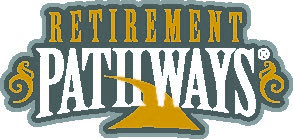SUBSCRIBE
Enter your Name and Email address to get
the newsletter delivered to your inbox.
Please include name of person that directed you to my online newsletter so I can thank them personally.


Dianne Williams Wildt, MBA
Certified Retirement Counselor®
Since 1983 in the financial services and investment industry
Retirement Pathways, Inc.
4500 Bowling Blvd., Suite 100
Louisville, KY 40207
Phone: 502-797-1258
Email: dianne@retirementpathways.com
Website: www.retirementpathways.com

As sole proprietor of your small business, you’re responsible for everything from filing taxes to setting up your retirement plan. Your financial and tax professionals can help you take advantage of retirement plan and business deductions to help reduce your income tax bill.
Health Insurance. You generally can take an above-the-line deduction for the cost of health insurance for yourself, your spouse and your dependents. The deduction is limited by the amount of your taxable income, so it isn’t available if your business has a loss.
Business Expenses. Deductible expenses include utilities, subscription services, travel and capital assets., You may be able to take the home office deduction for a portion of rent and utilities if an area of your home is dedicated exclusively to your business.
Self-employment Tax. Sole proprietors must pay both the employee and employer portion of self-employment tax (Social Security and Medicare.) You are allowed to deduct half the tax on your return.
Enter your Name and Email address to get
the newsletter delivered to your inbox.
Please include name of person that directed you to my online newsletter so I can thank them personally.
Enter your Name, Email Address and a short message. We'll respond to you as soon as possible.
Investment advisory services offered through American Capital Management, Inc., a State Registered Investment Advisor. Retirement Pathways, Inc. is independent of American Capital Management, Inc.
Retirement Pathways, Inc. and LTM Marketing Specialists LLC are unrelated companies. This publication was prepared for the publication’s provider by LTM Client Marketing, an unrelated third party. Articles are not written or produced by the named representative.
The information and opinions contained in this web site are obtained from sources believed to be reliable, but their accuracy cannot be guaranteed. The publishers assume no responsibility for errors and omissions or for any damages resulting from the use of the published information. This web site is published with the understanding that it does not render legal, accounting, financial, or other professional advice. Whole or partial reproduction of this web site is forbidden without the written permission of the publisher.